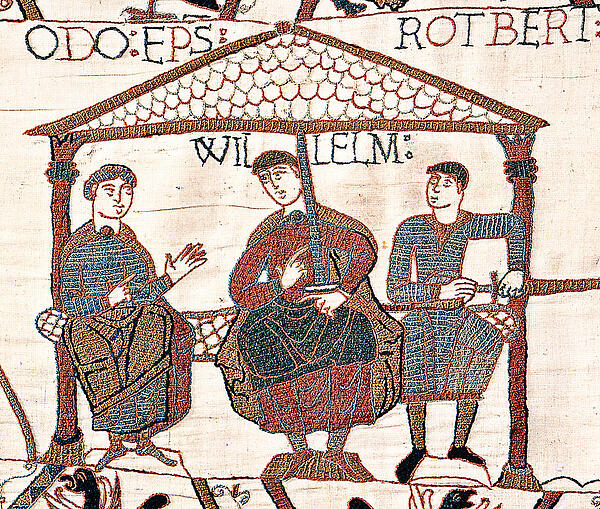The Laws of William the Conqueror
The laws of William the Conqueror were introduced after he was victorious at Hastings in 1066 affected England as a whole. William used them as a method of control over the English.
England labelled William ruling as cruel and oppressive. However, the laws were created to control a nation which had been conquered so could easily have been much worse. From the beginning of William’s reign, he wanted to be seen as appealing to the English - therefore attempted to learn their language as a way of showing this.
The laws were also a way for William to control the population of England along with castle building and the Domesday Book. However, William’s ‘appealing’ behaviour was not received in the way he expected it to be. Norman rule turned out to be a lot stricter after northern England rebelled.

The following list is an up to date translation of exactly what the laws stated:
- Every freeman will be required to swear an oath of loyalty to the king. All freemen will swear on the defence of William from his enemies.
- Any men who arrived in England in 1066 and afterwards with William, would automatically be safe. If any of the men are killed, their murderer is required to be found within a possible five days and the lord is responsible. If the lord does not do this, he must pay 46 marks of silver. If the lord cannot pay the fine, people who live under his rule must then pay up to 46 marks of silver.
- There will be only God to worship within the entire English nation and only one faith, which will keep the peace between the Normans and English.
- All of those Frenchmen sharing in the English customers during the reign of Edward the Confessor will pay ‘scot and lot’.
- There can be no live cattle sold outside of cities. If cattle is sold within cities, there must be at least three sale witnesses. If this law is not kept, whoever is responsible shall be fined the same amount that was made in the sale.
- The Englishman will have the right to defend himself if he is ever accused of murder. He may defend himself through either combat or hot iron, but if he is unable to attend due to illness, he can find another Englishman to take his place.
- Each law concerning the ownership of land introduced under Edward the Confessor, will be maintained along with the land laws William introduced.
- No one shall face execution for committed crimes, but if a person is found to be guilty they will be blinded and castrated. This law should not be challenged.
- Any person wishing to be considered a freeman is required to swear an oath of loyalty, which should be guaranteed by others. If the man who swore the oath breaks the law, the ones who guaranteed his oath need to then pay any fines against him. Any problems should be addressed within a court of law - anyone who is summoned to court that refuses to attend will receive a warning, and if he still will not attend a second time will have one ox taken from him. In the event he refuses to attend a third time, another ox will be taken away. Failure to attend the fourth time will result in a fine being paid to the king and his goods taken away which equal the same value of the original charge.
- No man has permission to sell another, and anyone who goes against this law will have to pay a fine to the king.
William’s vicious opposing of any opponents happened only after the failed northern England rebellion, centring on a York Castle attack, had occurred. Once the English appeared to betray William and his ‘generosity’ he set out on the ‘Harrying of the North’ and the law inflicted onto England was even more harsh.
See also:
William the Conqueror and the Consolidation of Power 1066-1087
MLA Citation/Reference
"The Laws of William the Conqueror". HistoryLearning.com. 2026. Web.
